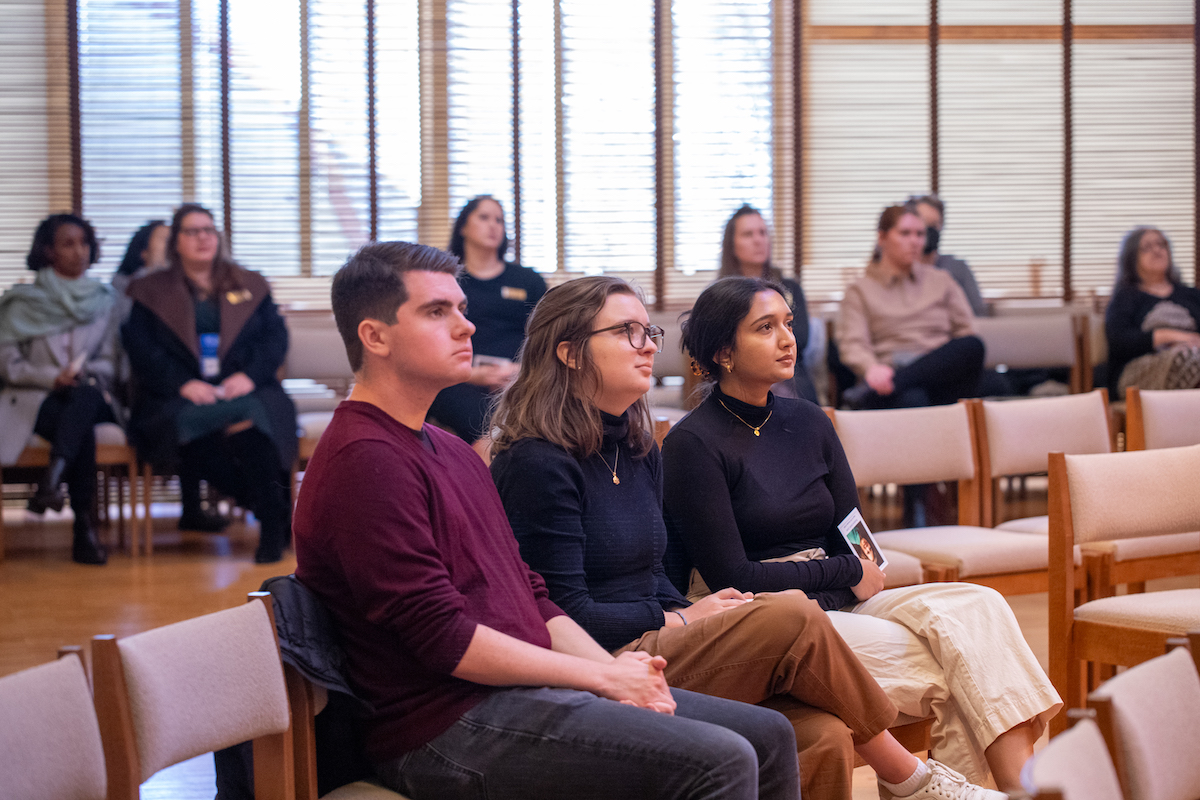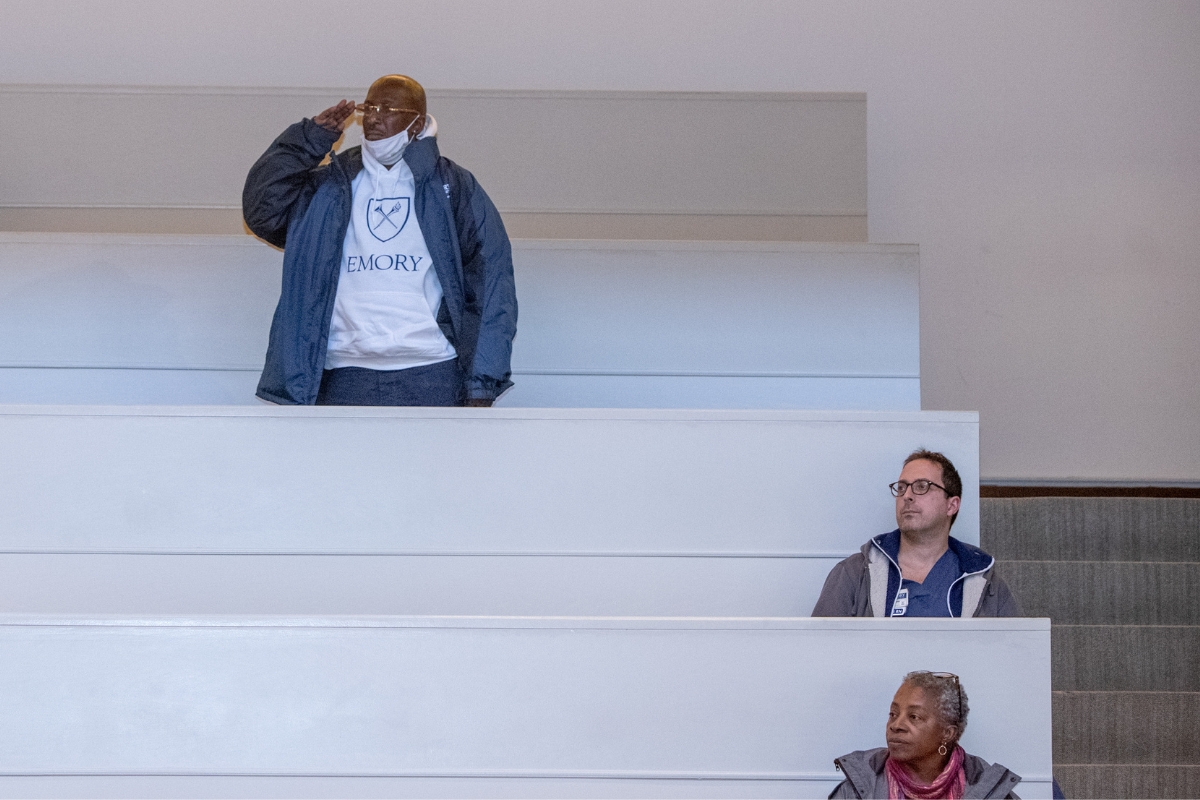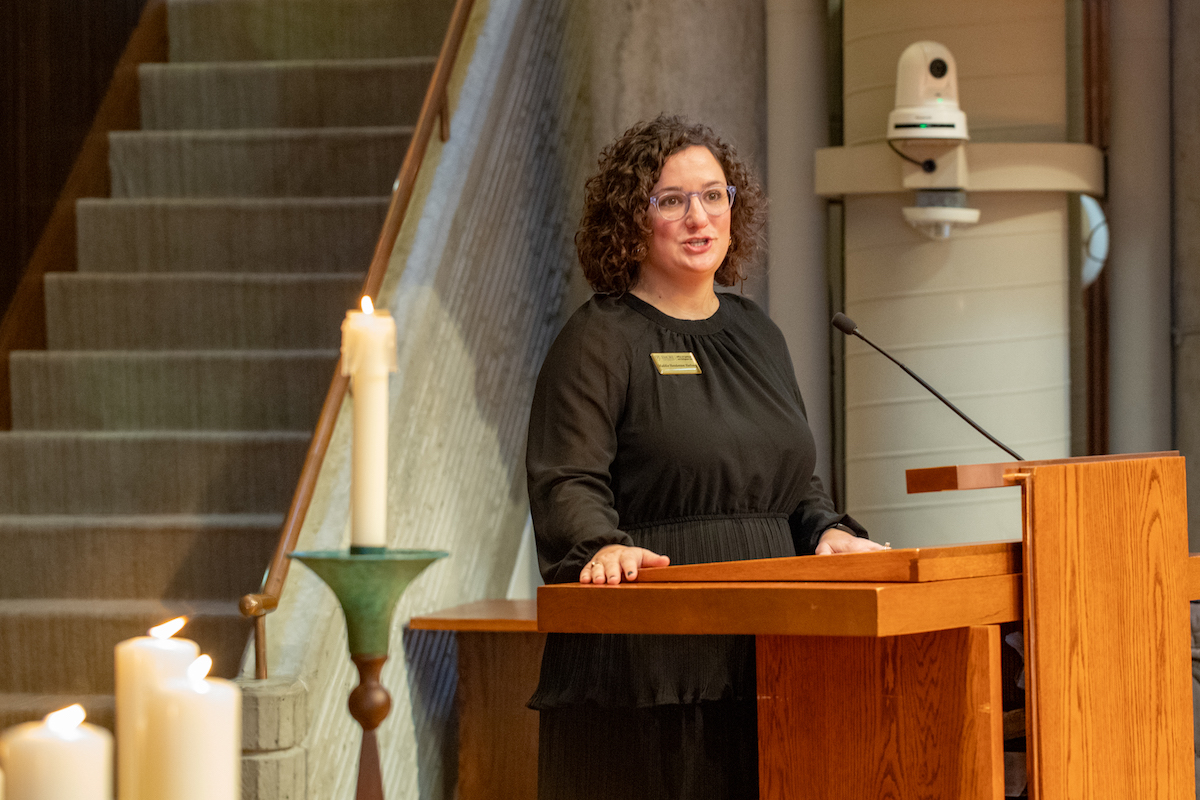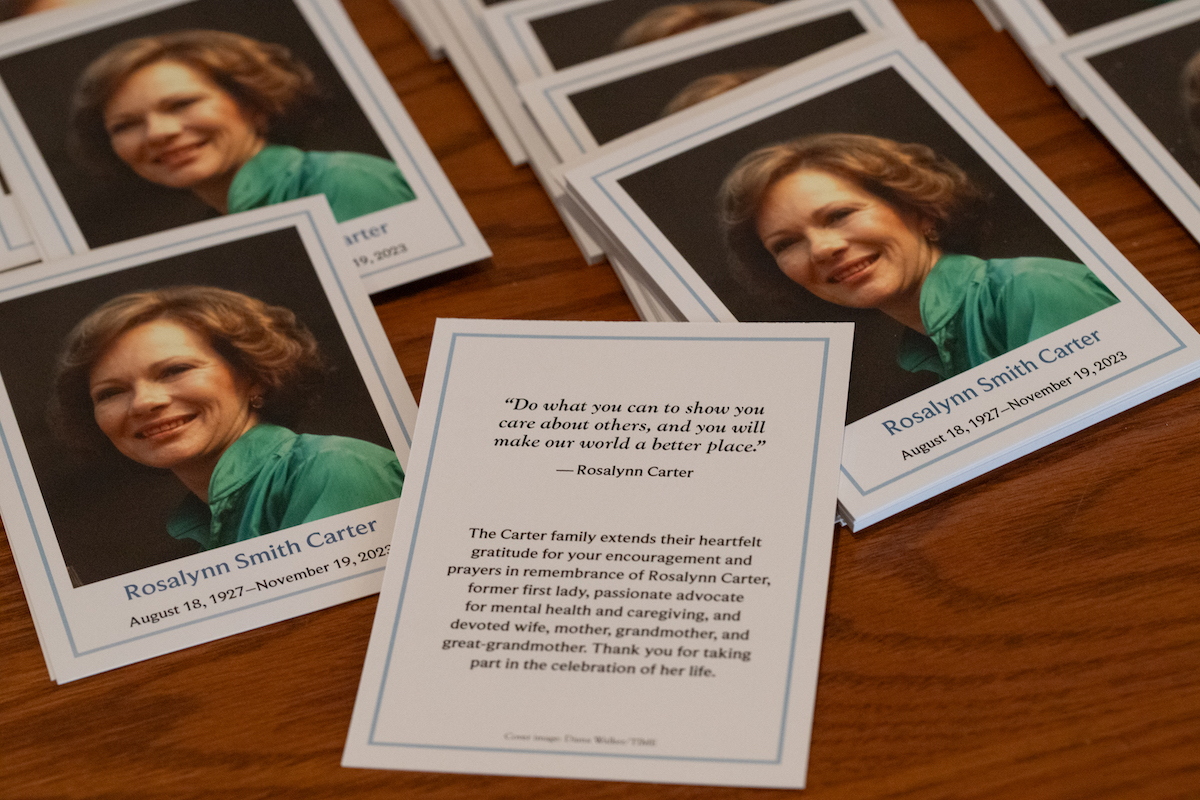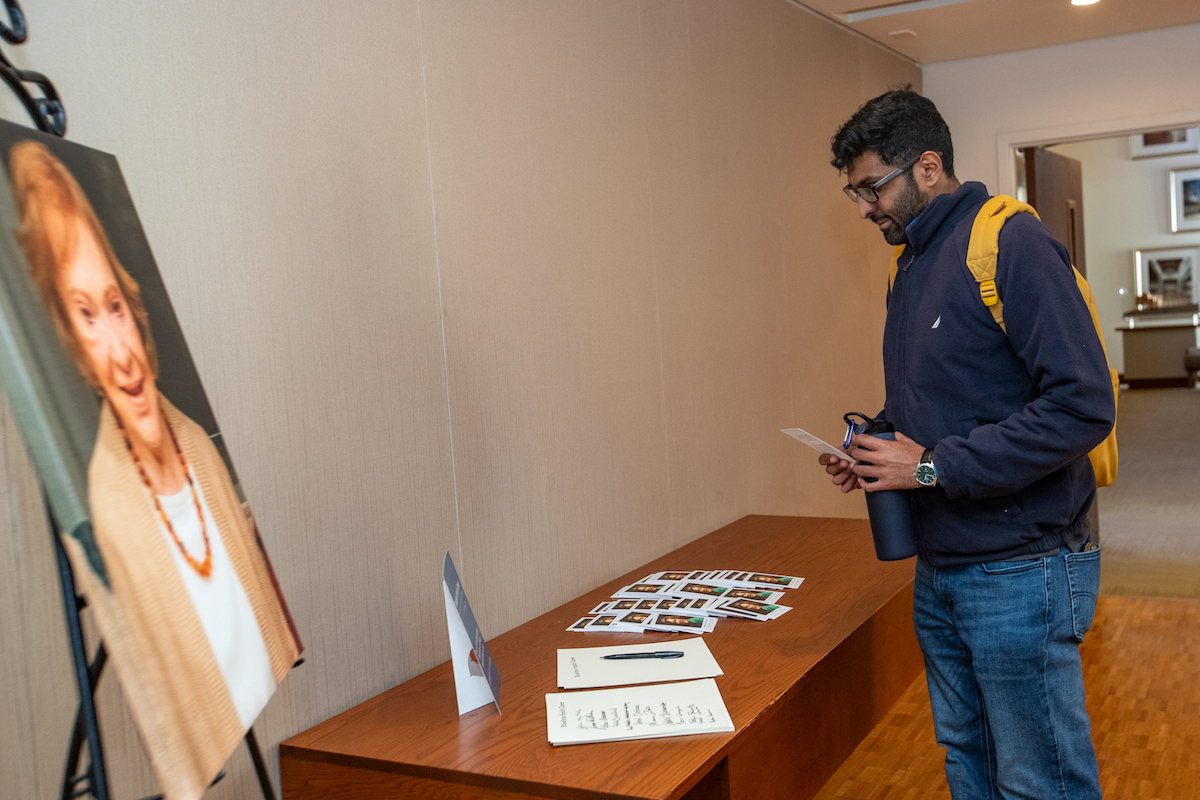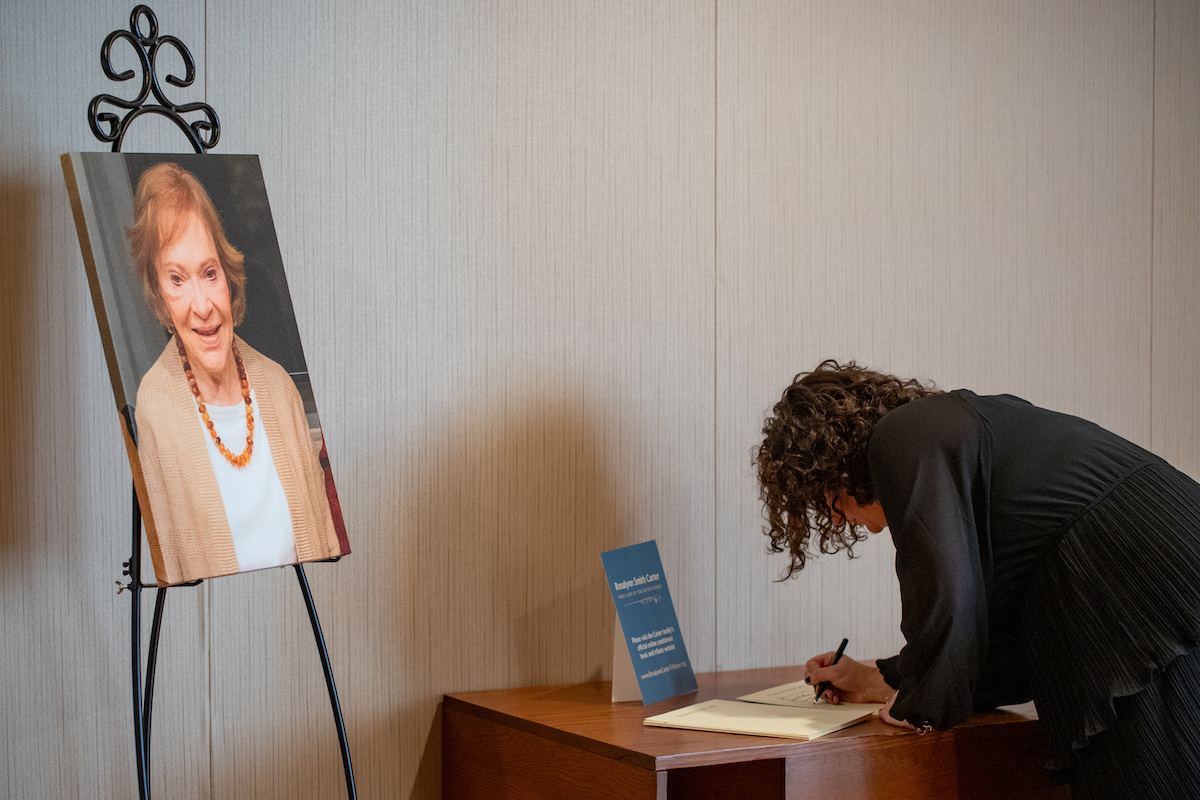On a crisp November afternoon, members of the Emory community made their way into Cannon Chapel to pay their respects to former first lady Rosalynn Carter. While her tribute service with invited guests took place at nearby Glenn Memorial United Methodist Church, the Cannon Chapel event was open to those on campus who wished to view the televised service in community with one another.
The Rev. Maddie Henderson Herlong, Christian chaplain in Emory’s Office of Spiritual and Religious Life (OSRL), welcomed visitors into Cannon Chapel. Additional OSRL staff were present and available for any individuals seeking pastoral care.
Mrs. Carter was beloved around the world, but her legacy stands particularly tall in Georgia, where she and former President Jimmy Carter spent most of their lives. In Atlanta, Mrs. Carter partnered with Emory experts for decades throughout her transformative work advancing mental health and working toward a more equitable health care system.
Mrs. Carter’s relationship with the university was just half of an unforgettable chapter in which both Carters turned to Emory to help achieve their ambitious goals after leaving the White House. In 1982, the couple launched The Carter Center in association with Emory to promote peace and democracy and to address issues of global health.
Attendees from across the Emory community — and with varying levels of personal ties to Mrs. Carter — gathered in Cannon Chapel to reflect with others. And the room certainly felt like an extension of the Glenn Memorial service, with the audience laughing, crying and nodding along with the speakers, all coming to the conclusion that Mrs. Carter led a life well lived.
Maura Toole, a junior from Greensboro, North Carolina, double majoring in philosophy and human health, has always admired Mrs. Carter. “She was kind of a hero in my home growing up, so to be here to celebrate her legacy and all the ways she made the world a better place is a big deal to me.
“As someone headed into the public health field, I admire the Carter family a whole lot because of their work and The Carter Center,” said Toole. “The Carter Center is one of my favorite places in Atlanta.”
Aditi Wamorkar from Charlotte, North Carolina, is a junior majoring in neuroscience and behavioral biology. Attending with Toole, she said, “It’s historic and pretty cool to have this happen on our campus, so I came out for that but also to pay my respects.”
When William Bodnar, unit director at Emory University Hospital, saw an opening on his calendar, he knew he had to attend. Bodnar was born during Carter’s presidency and has always been aware of all the good work he’s done.
“I’m familiar with the Carter family in a general sense,” Bodnar said. “But I knew less about Rosalynn Carter... when she died, I checked out more information about her. I’m the kind of person who goes to an event because I appreciate history but also to get to know a person who I thought I already knew things about.”
Similarly, Felita Cleveland — a custodian with Building and Residential Services (BRS) — said she wanted to pay her respects to Mrs. Carter after learning so much about her life and legacy.
“I’ve heard a lot about Mrs. Carter, so I just wanted to keep the knowledge going,” said Cleveland.
Jacob Ericsson, an exchange student from Sweden studying accounting finance at Emory, described walking by Glenn Memorial United Methodist Church and seeing the motorcades belonging to public officials. “I feel like part of something bigger. It’s honestly hard to put into words,” he said.
Frequently referenced during the tribute service, the 77-year marriage of Jimmy and Rosalynn Carter was at the forefront of many minds.
Fran Anderson, BRS supervisor, said she witnessed the Carter presidency and commended how the Carters stood alongside one another.
“I remember when Jimmy Carter was president, and how he helped the community. She was always by his side,” said Anderson. “I think for me, it’s the love that they shared. Seventy-seven years of marriage is a long time, and you don’t really see that these days. I think it’s just an homage to how they gave their love to the world, so I feel like it’s something I should give back.”
Anderson also spoke of her admiration for Mrs. Carter’s work in dismantling the stigmas associated with mental health struggles.
“I deal with mental health, and she was a big champion of that. That’s something that I feel like a part of her is a part of me, because she represented that and had a cause for that,” said Anderson.
Anderson also expressed hope that people will take the important lessons from Mrs. Carter to heart and reflect on them in her memory.
“She’s well-loved in the community. Everybody has pleasant things to say about her. I think her memory will live on. Hopefully, just for this day, we could all grow and learn from what she gave and what her life was about.”
Photos by Jenni Girtman, Atlanta Event Photography.


